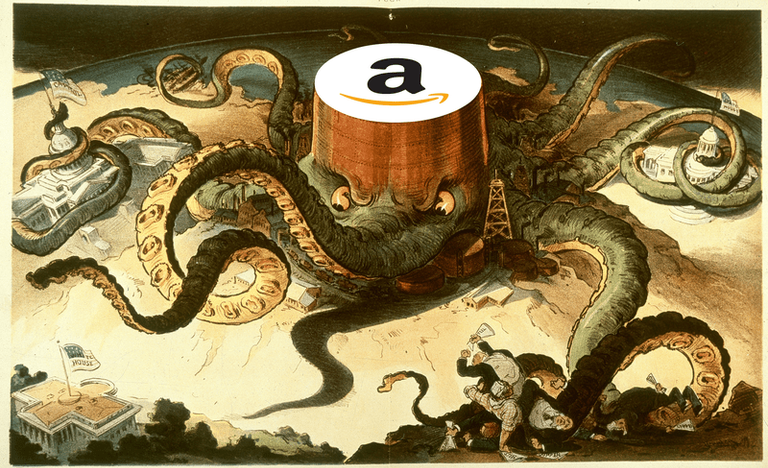Are Monopolies Really That Bad?
Positives of Monopolies
Before watching this lecture, I honestly didn’t necessarily like the idea of monopoly power and monopolies because of how much control they can have over the economy, controlling costs of many products. As I continued to watch and listen to the lecture video, I realized that there are a couple of ideas mentioned that aren’t exactly a bad thing when it comes to monopoly power. One is that people wouldn’t be able to innovate new ideas, which basically suggests we wouldn’t have any entrepreneurs and the advancement of any new businesses or industries. Our world would lack any new economic advancement. The second is that we each have power over our labor, and that is not necessarily a bad thing either. We don’t want to lose that power. So, we should want to preserve and maintain monopoly power in the United States to continue to innovate.
Where do Economies of Scale come into Play?
One of the ideas that I have thought of about why monopolies are not a bad thing for the economy includes economies of scale. The question I want to answer when thinking about economies of scale is, what role do economies of scale play in the persistence monopolies? Economies of scale refer to the advancement of big companies, and as the quantity of output goes up, the cost per unit goes down. Some examples of economies of scale are Walmart and Costco. Firstly, economies of scale play a vital role in continuing the dominance of monopolies by making it hard for new competitors to enter the market through low costs of production and increase in consumer spending. Economies of scale allow monopolies to lower their costs with the increase of production levels. So, the monopoly can spread its fixed costs across the company to make costs more affordable for consumers buying one-of-a-kind products. Consumers are happy with lower prices on products they can only get through this company, and I feel like this is a positive for monopolies and their effect on the economy. Though it has already been mentioned that monopolies have a positive effect on the economy by encouraging innovation, economies of scale also encourage investment in innovation through the monopoly. This happens because the lower production costs allow monopolies to have more capital to invest in innovation, marketing efforts, and expanding operations. The more we innovate in the economy, the more we advance as a country and become a leader in our economy compared to everyone else around the world. These monopolies also set their own prices to affect supply chains positively and produce products efficiently. Since economies of scale are more prominent than monopolies, entrepreneurs can lean on these whenever they first enter a market with a lot of risk in their business.
Monopolies' Global Impacts
So, how can we look at monopolies in a global aspect? When looking from a global perspective, US monopolies almost negatively affect the market. Firstly, the rise of global monopolies can impact small businesses and economies, especially in developing countries. Overall, these small businesses cannot compete with monopolies. Against small businesses, monopolies engage in predatory pricing. This means that they can lower their prices even more, which drives out small businesses and economies. This is detrimental to smaller, developing countries. Monopolies negatively affect these developing countries because without small businesses driving their economies, poverty levels increase. Inhabitants of these countries cannot afford to live or work with monopolies dominating their countries. Monopolies are not all bad from a global perspective. One question we can answer that I think positively attributes to monopolies is, what role do monopolies play in global market consolidation? Market consolidation encourages buying power, visibility of the business, and lower customer costs. These all positively affect the economy, and a lot of monopolies participate in some type of market consolidation when wanting to continue to innovate. One example of this is Facebook. Once Facebook matured into a company, they decided they wanted to consolidate its market share by buying other social media companies. Facebook then decided to buy Instagram and, now, Meta Platforms. As a monopoly, Facebook wanted to continue to innovate across the platform and continue to keep costs consistent for consumers.
Conclusion
Overall, I think monopolies are important to maintain. As an entrepreneur, you technically start as a monopoly, and monopolies are crucial for entrepreneurs’ success. Simply put, no monopolies and no entrepreneurs. Furthermore, no entrepreneur, no innovation, and no advancement as a society. Entrepreneurs constantly have to ask themselves how they can expand in industries where monopolies dominate and how they can maintain control over pricing, distribution, and access to be competitive to these already-existing monopolies. How can we, as a society, encourage innovation even with all of the risks attached to it for entrepreneurs to take this chance?
